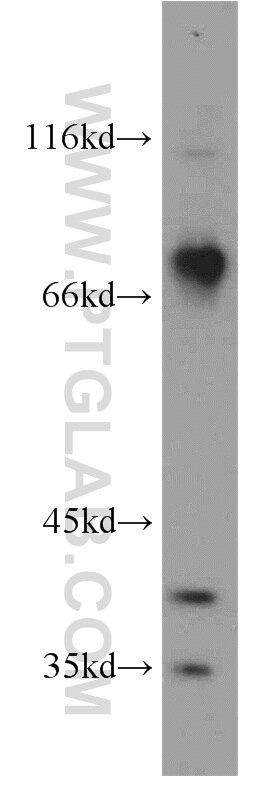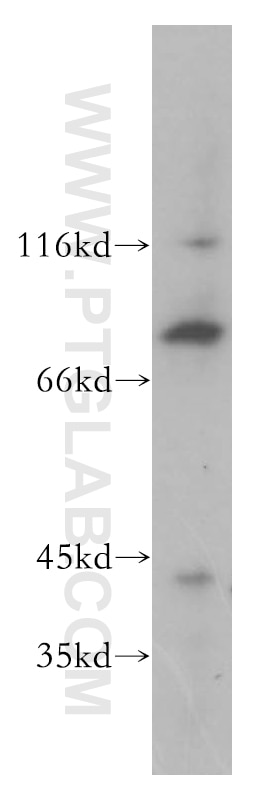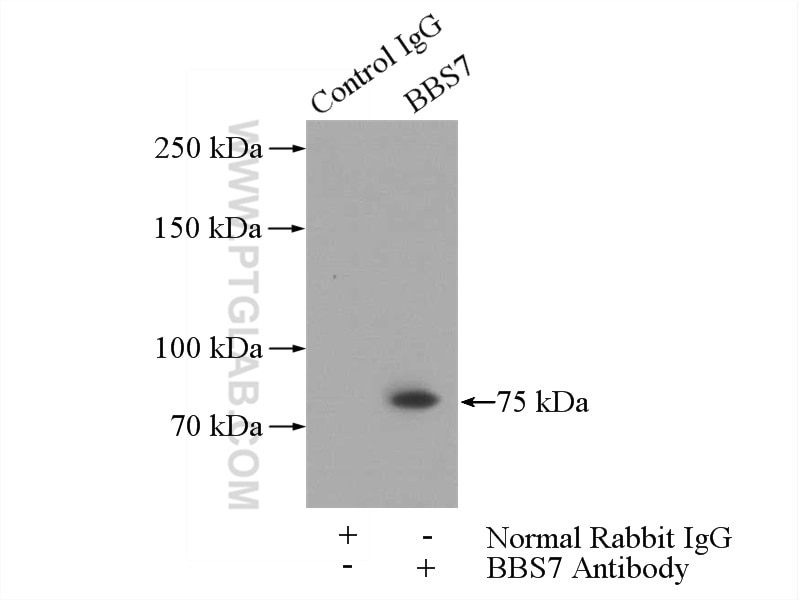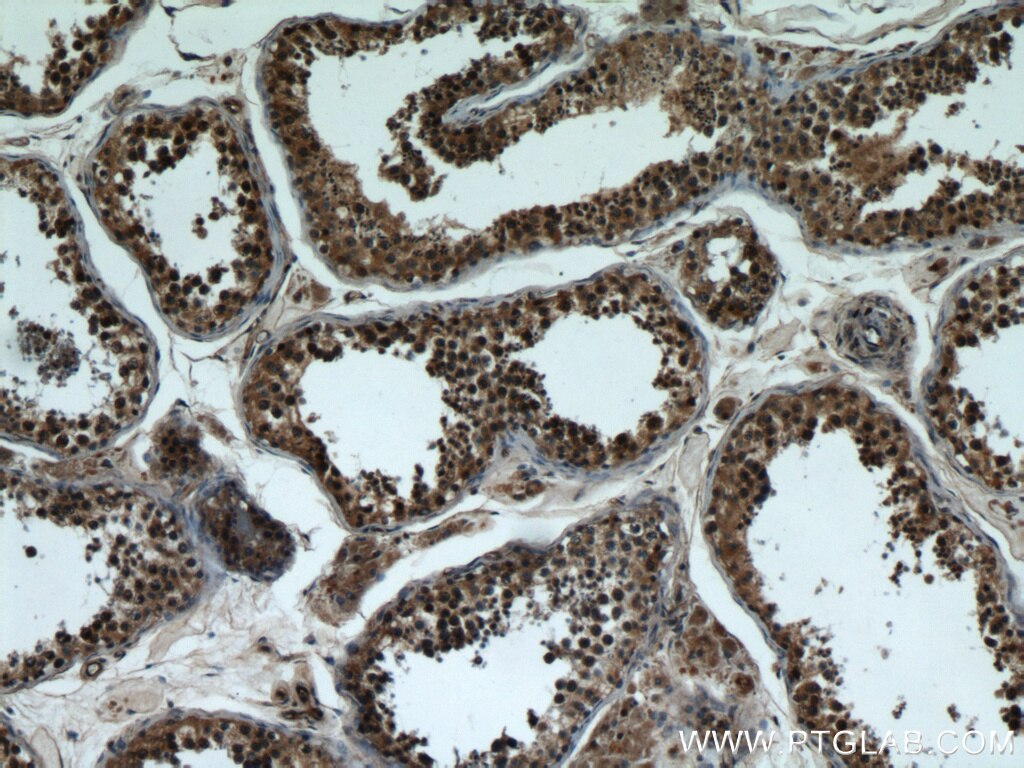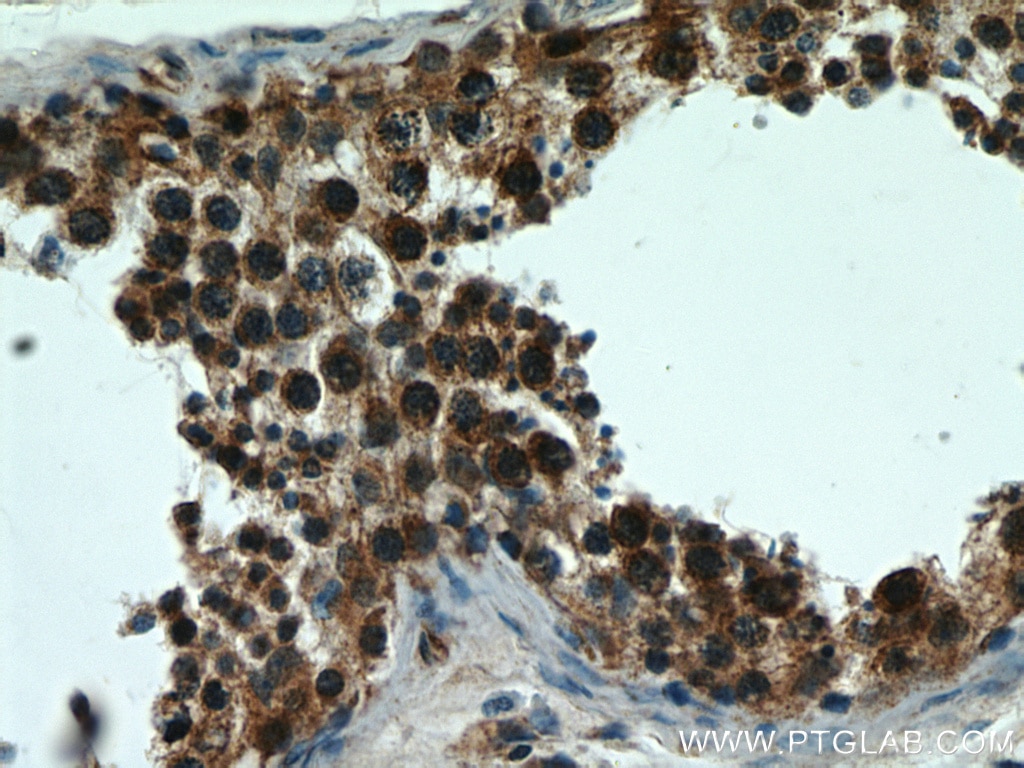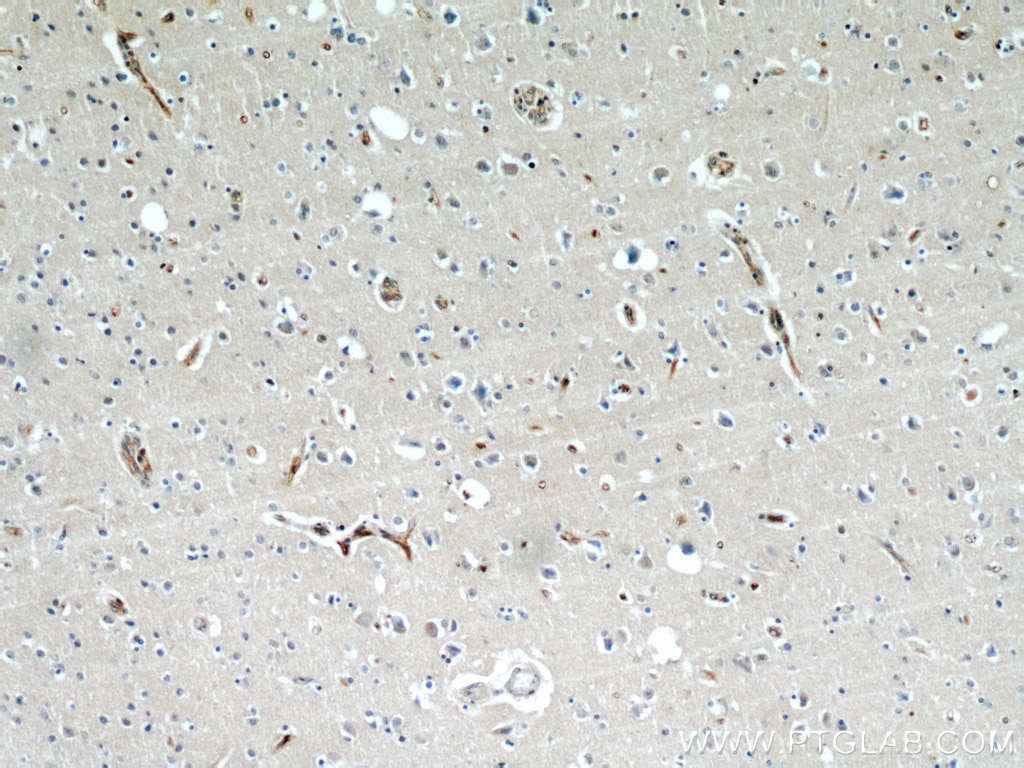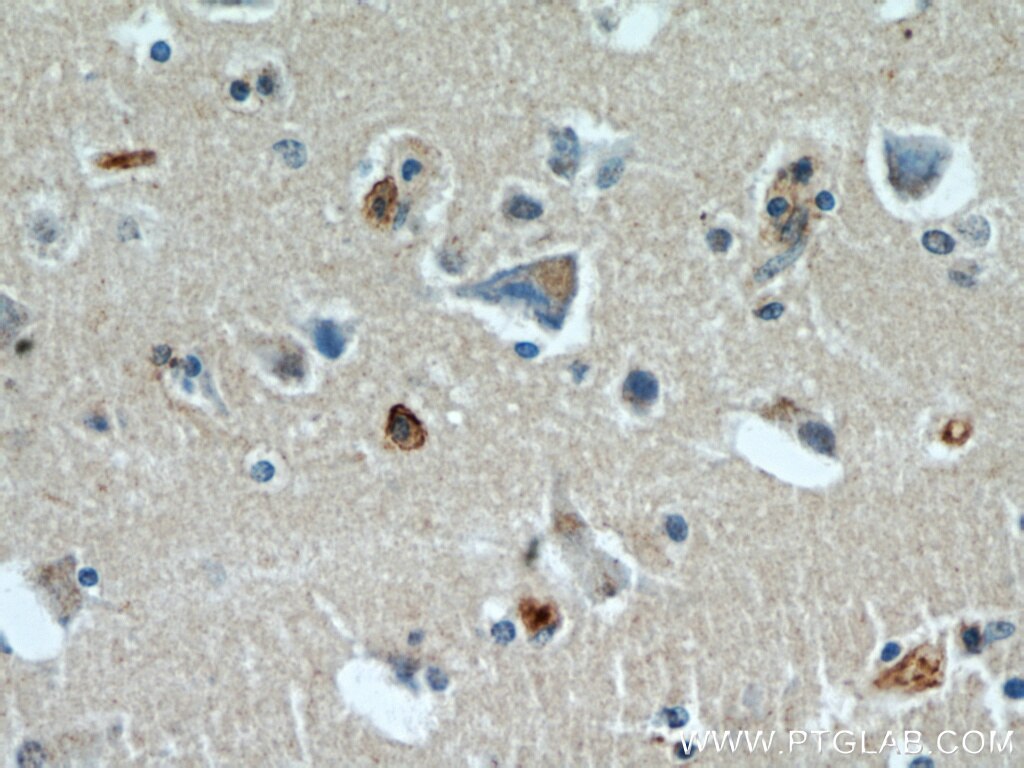BBS7 Polyklonaler Antikörper
BBS7 Polyklonal Antikörper für WB, IP, IHC, ELISA
Wirt / Isotyp
Kaninchen / IgG
Getestete Reaktivität
human, Maus
Anwendung
WB, IHC, IF, IP, ELISA
Konjugation
Unkonjugiert
Kat-Nr. : 18961-1-AP
Synonyme
Geprüfte Anwendungen
| Erfolgreiche Detektion in WB | humanes Hirngewebe |
| Erfolgreiche IP | Maushodengewebe |
| Erfolgreiche Detektion in IHC | humanes Hodengewebe, humanes Hirngewebe Hinweis: Antigendemaskierung mit TE-Puffer pH 9,0 empfohlen. (*) Wahlweise kann die Antigendemaskierung auch mit Citratpuffer pH 6,0 erfolgen. |
Empfohlene Verdünnung
| Anwendung | Verdünnung |
|---|---|
| Western Blot (WB) | WB : 1:500-1:3000 |
| Immunpräzipitation (IP) | IP : 0.5-4.0 ug for 1.0-3.0 mg of total protein lysate |
| Immunhistochemie (IHC) | IHC : 1:20-1:200 |
| It is recommended that this reagent should be titrated in each testing system to obtain optimal results. | |
| Sample-dependent, check data in validation data gallery | |
Veröffentlichte Anwendungen
| WB | See 8 publications below |
| IHC | See 1 publications below |
| IF | See 1 publications below |
| IP | See 2 publications below |
Produktinformation
18961-1-AP bindet in WB, IHC, IF, IP, ELISA BBS7 und zeigt Reaktivität mit human, Maus
| Getestete Reaktivität | human, Maus |
| In Publikationen genannte Reaktivität | human, Maus |
| Wirt / Isotyp | Kaninchen / IgG |
| Klonalität | Polyklonal |
| Typ | Antikörper |
| Immunogen | BBS7 fusion protein Ag4601 |
| Vollständiger Name | Bardet-Biedl syndrome 7 |
| Berechnetes Molekulargewicht | 715 aa, 80 kDa |
| Beobachtetes Molekulargewicht | 75 kDa |
| GenBank-Zugangsnummer | BC032691 |
| Gene symbol | BBS7 |
| Gene ID (NCBI) | 55212 |
| Konjugation | Unkonjugiert |
| Form | Liquid |
| Reinigungsmethode | Antigen-Affinitätsreinigung |
| Lagerungspuffer | PBS with 0.02% sodium azide and 50% glycerol |
| Lagerungsbedingungen | Bei -20°C lagern. Nach dem Versand ein Jahr lang stabil Aliquotieren ist bei -20oC Lagerung nicht notwendig. 20ul Größen enthalten 0,1% BSA. |
Hintergrundinformationen
BBS7, also named as BBS2L1, is a component of the BBSome complex which is required for ciliogenesis but is dispensable for centriolar satellite function. BBS7 is mediated in part by the Rab8 GDP/GTP exchange factor, which localizes to the basal body and contacts the BBSome.
Protokolle
| PRODUKTSPEZIFISCHE PROTOKOLLE | |
|---|---|
| WB protocol for BBS7 antibody 18961-1-AP | Protokoll herunterladen |
| IHC protocol for BBS7 antibody 18961-1-AP | Protokoll herunterladenl |
| IP protocol for BBS7 antibody 18961-1-AP | Protokoll herunterladen |
| STANDARD-PROTOKOLLE | |
|---|---|
| Klicken Sie hier, um unsere Standardprotokolle anzuzeigen |
Publikationen
| Species | Application | Title |
|---|---|---|
Proc Natl Acad Sci U S A Accumulation of non-outer segment proteins in the outer segment underlies photoreceptor degeneration in Bardet-Biedl syndrome. | ||
PLoS Genet A novel protein LZTFL1 regulates ciliary trafficking of the BBSome and Smoothened. | ||
PLoS Genet The Centriolar Satellite Protein AZI1 Interacts with BBS4 and Regulates Ciliary Trafficking of the BBSome. | ||
PLoS Genet BBSome function is required for both the morphogenesis and maintenance of the photoreceptor outer segment. | ||
Hum Mol Genet Photoreceptor cilia, in contrast to primary cilia, grant entry to a partially assembled BBSome. | ||
FASEB J Rhodopsin mislocalization drives ciliary dysregulation in a novel autosomal dominant retinitis pigmentosa knock-in mouse model |
